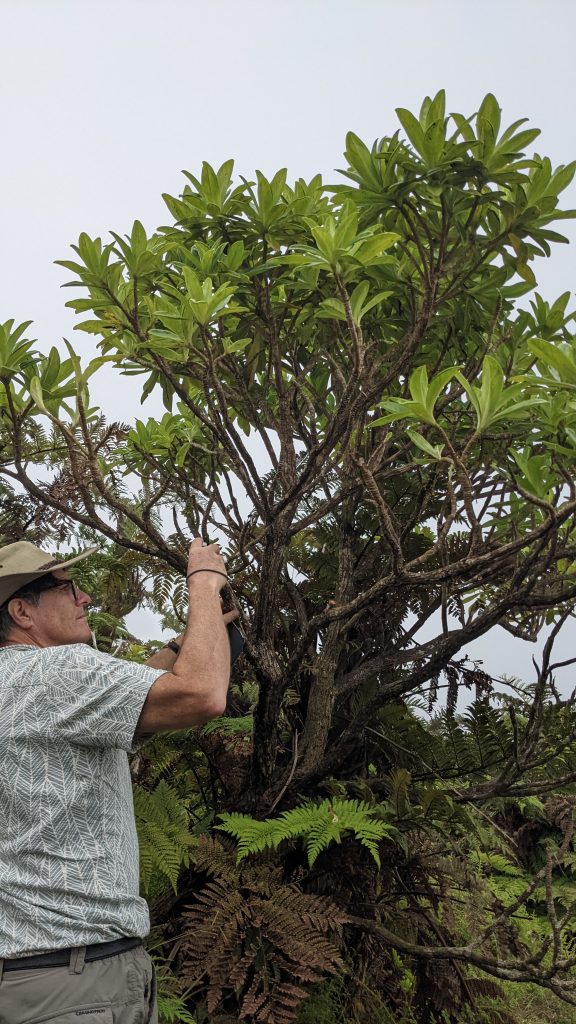2 March 2022
A team of scientists – Plant Pathologists, Dr Rob Reeder and Phil Taylor, and Entomologist, Dr Norbert Maczey, from the Centre for Agriculture and Bioscience International (CABI), as well as Professor Rob Jackson and PhD student, Amy Webster, from the University of Birmingham Institute of Forest Research – are currently on-Island supporting the Environment, Natural Resources & Planning Portfolio and the St Helena Research Institute with the delivery of a Darwin Plus funded project.
St Helena’s endemic trees, insects as well as food crops, fruit and forest trees are threatened by unidentified introduced diseases caused by a range of organisms including bacteria, fungi and viruses, or changes to diseases that are endemic to the Island, through climate change.
The team of scientists are the lead project partner in the Darwin Plus funded Project (DPLUS157) ‘Managing the pathogens threatening St Helena’s biodiversity and food security’. This is a three-year project which aims to collate all existing records and knowledge about the plant diseases that have been found on St Helena that affect our food crops, fruit trees, forestry trees, and endemic plants – primarily the cabbage trees of the Cloud Forest. The Project seeks to identify unidentified or unrecorded diseases that are found here and are causing problems or cause for concern, build capacity locally to identify plant diseases and find solutions to manage priority diseases, notably those that may threaten the Island’s food security and Cloud Forest trees.
If you would like further information about the Project or have crops that show signs of disease that you are concerned about, please contact Martina Leo on tel: 24724 or email: martina.leo@sainthelena.gov.sh or Rebecca Cairns-Wicks via email: rebecca.cairns-wicks@sainthelena.gov.sh.

#StHelena #DarwinPlus #AltogetherGreener
SHG
2 March 2022